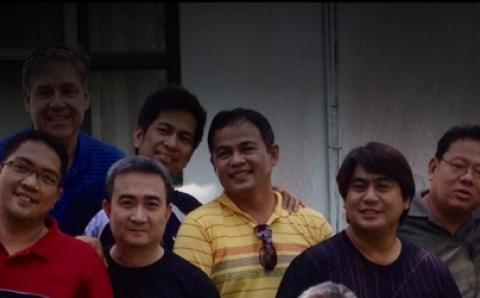Justice
Q My son wants a job that promotes social justice, but we are concerned about whether he will be able to support family, church, and Christian school. Any thoughts?
A In addition to looking for a good job with good pay, many young people are searching for employers who take social and environmental responsibilities seriously. That is a good thing. Students in business administration, for example, now study ethics and the environment as well as how to run a business. Evidence that this is changing business culture is slow but encouraging.
In Reformed terms, the expanding focus on corporate social responsibility is the gospel penetrating into the world of business and employment. Along with a growing demand for products that are produced responsibly, there are more tools to help consumers and investors make responsible choices. These are moving from fringe alternatives to significant economic forces—and that is where Christians who care about justice can be effective agents of economic change.
Biblical justice calls us to be as concerned about how we create wealth as about how we use that wealth to support good causes. A more just economic system will mean significant changes in our ways of living and our current models of church and school. My children and grandchildren will live a very different life, but it can be a good life—perhaps better. My generation integrated faith questions into home, church, and school, but less in economic and political life. I pray that the next generation will be creative in facing the challenges that biblical teachings about justice and care for the environment put before us, and that lifestyle expectations do not hold them back.
—Kathy Vandergrift
Outreach
Q A close friend of mine who grew up in the church says she is no longer a believer. Some see it as my job to “bring her back,” but I always believed “once saved, always saved.” What should I do?
A The best thing you can do is pray for your friend and allow your own faith to shine in the way you continue to care for and love her. Perhaps there will be an opportunity to have a conversation that reconciles her difficulty with faith. Perhaps not.
One of the worst things such former believers face is our attempts to “pull them back in.” This approach communicates that they are now no longer one of “us” and that they need to return to where we are. That attitude only confirms to them that they have made the right choice.
More helpful is trying to understand from your friend’s perspective how she came to see faith in God as a hindrance to moving forward. It may be an emotionally-based reaction (God wasn’t there when X happened), an intellectually-based decision (I can’t believe in God when science says X), or some combination of these and other reasons.
As for whether or not such a person is “always saved,” well, that’s up to God. God desires an active, living connection with each one of us, including your friend. That’s reason enough to keep your own relationship with her strong.
—Bryan Berghoef
Faith Formation
Q I’m a high school youth group leader. I’ve noticed that Sunday school and catechism teachers as well as Cadet and GEMS counselors receive significant support for their weekly responsibilities, while we receive none. Sometimes our (all-volunteer) team feels quite lost. Where do we go for support?
A Funny you should ask: I’m a youth group volunteer, and our team frequently asks the same question. Answering your question requires looking back, looking around, and looking ahead.
Thirty years ago the situation was simpler: Faith Alive Christian Resources (then CRC Publications) provided Sunday school and catechism curriculum, GEMS and Cadets provided detailed program support, and churches ran discussion-based youth groups enhanced by Youth Unlimited’s convention and monthly magazine Insight (these latter three ministries were together called “United Calvinist Youth”). Youth pastors didn’t exist.
Today GEMS and Cadets still provide strong program support, and YU continues to run special events. Faith Alive’s excellent resources are competing with an explosion of materials on the web. Youth groups are run in hundreds of different ways by full- or part-time youth workers (with dozens of different job descriptions) or volunteers (like your group and mine).
A great deal of wonderful youth ministry is happening around the CRC, but I see the lack of centralized support as a denominational embarrassment.
Looking ahead: six years ago the RCA formed a new position called “Coordinator for Discipleship” to provide the type of support your team and mine would be blessed by. I’m not sure exactly what we need in our context. Maybe it’s time to begin brainstorming.
—Syd Hielema
About the Authors
Syd Hielema serves as the director of the CRC's Connections II project. He worships at the Meadowlands Fellowship CRC in Ancaster, Ont.
Kathy Vandergrift teaches public ethics to university students and advocates for the rights of children.
Bryan Berghoef is an ordained CRC pastor and church planter. He lives in Holland, Mich., and works remotely supporting online contemplative learning and curating social media content for the Shalem Institute for Spiritual Formation in Washington, D.C.








